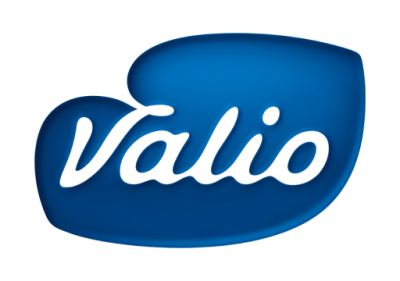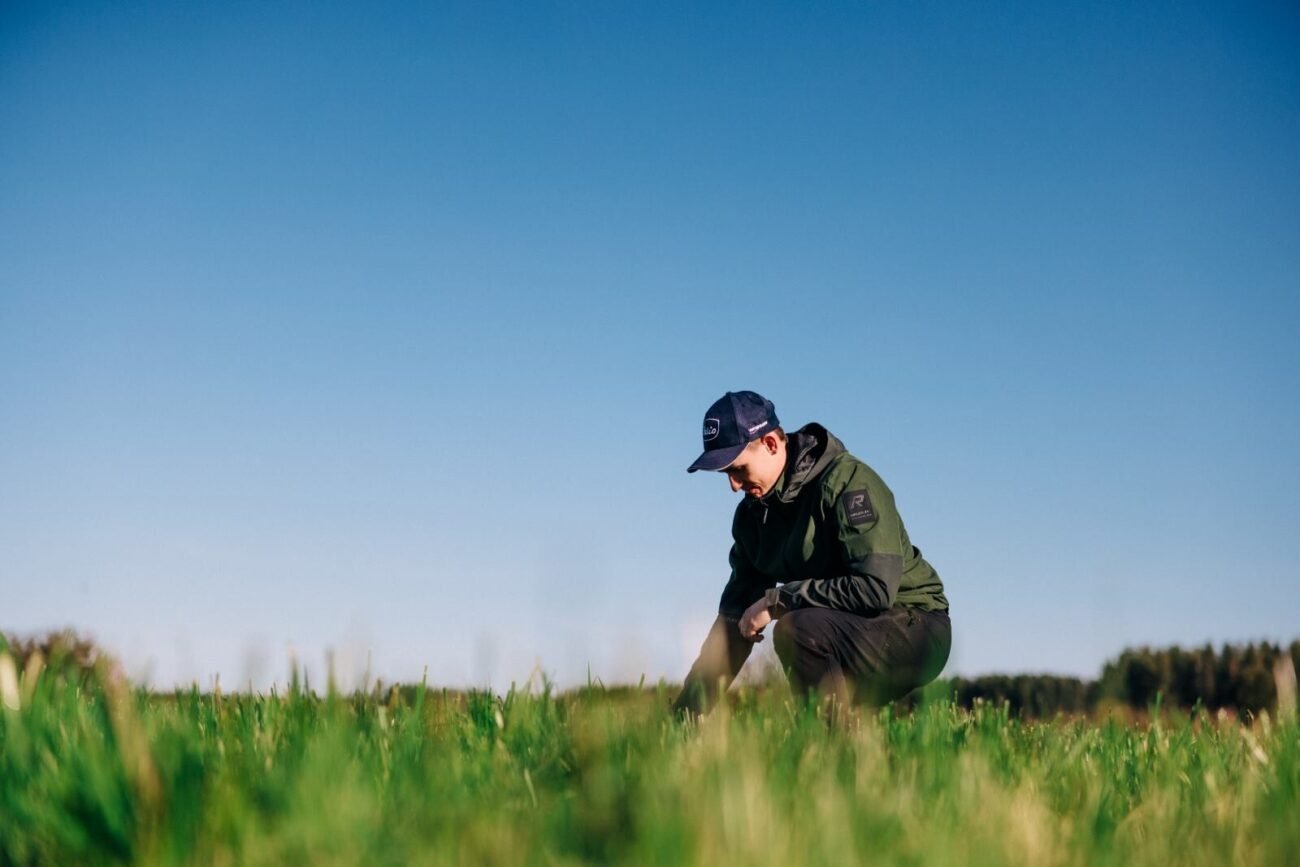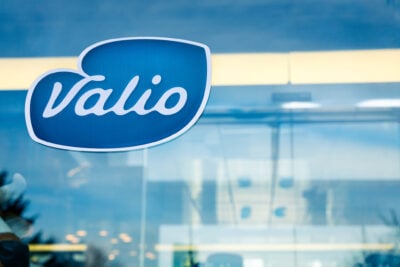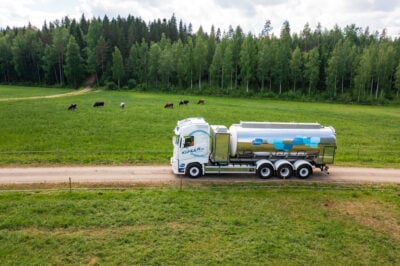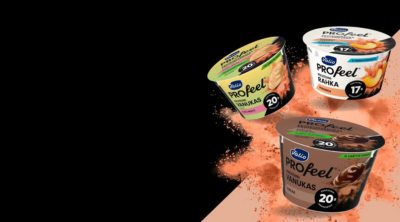Valio has launched a five-year Carbon-Neutral Dairy Farm pilot to test carbon-neutral dairy production actions in practice. Four Valio dairy farms in different parts of Finland are participating in the pilot. The pilot aims to find out how the concrete climate actions to be taken on the farms affect emissions from milk production, how they work in everyday farm life, and what their cost-benefits and impacts are. Emission reduction targets for the whole food chain create demand for carbon-neutral milk.
The actions of Valio’s climate work and climate programme to date will be made available to the dairy farms in the five-year pilot. The pilot will explore how the carbon footprint of the milk produced on farms can be reduced to zero by reducing emissions and adding carbon sinks, and how different practices can be used on dairy farms more widely. It will also explore the commercial potential of carbon-neutral milk. The aim of the pilot is to make milk production on four Valio dairy farms carbon neutral.
”Valio and its dairy farms has been very focused on climate work since 2018. A lot of work has already been done on Valio dairy farms to reduce emissions, but comprehensive practical experience on the impact of the actions on farm level has so far been lacking. Now is the right time to take all the research knowledge and practical experience we have gained in the past and put it into practice on the farm,” says Development Manager Robert Harmoinen from Valio's Climate team.
The farms will, among other things, introduce feeding solutions that reduce methane emissions, calculate their carbon footprint, promote regenerative farming and different fertilisation solutions, participate in biogas production and reduce potential feed and milk waste. Carbon flux instrumentation towers will be installed in fields to verify carbon sequestration in grassland and carbon emissions from soil. A biodiversity inventory will also be carried out on the dairy farms and will be used as the basis for a biodiversity improvement plan for the farms.
”The change will be made at the dairy farms”
The farms taking part in the pilot are located in North Savo, Pirkanmaa, South Ostrobothnia and North Ostrobothnia.
”The change will be made at the dairy farms. It’s an honour to be part of conceptualising innovative solutions and to give the opportunity for doing the research. At the same time, grassroots-level knowledge can be brought to other Valio dairy farms,” notes Jaakko Luoma from the Luoma farm in Kauhajoki.
The Luoma farm has been monitoring its carbon footprint for four years with the Carbo® Farm calculator. The carbon footprint is now 0.76 CO2e/kg ECM, which is lower than the average for Valio farms. According to Jaakko Luoma, the carbon footprint has been reduced by improving productivity. Approaches on the arable land side include regenerative farming practices that improve carbon sequestration and soil condition and animal feed solutions in the barn.
”I expect that the pilot will provide us with new ways to reduce our carbon footprint to zero.”
Valio currently has around 3,400 dairy farms. According to Robert Harmoinen, the pilot will seek to find the best possible ways of introducing individual actions so that they can be made part of everyday life also on other Valio dairy farms, as practical experience is gained and incentives are provided by the market.
Valio aims to produce carbon-neutral milk by 2035. According to Harmoinen, reaching this target is possible, but there is still a lot of work needed.
”More than 90% of emissions from milk production come from farms. Work at the farm level is clearly the key to achieving the target.”
The food chain’s emission reduction targets boost interest in carbon-neutral milk
During the pilot, Valio will also test what kind of commercial potential the carbon-neutral milk has.
”In conjunction with the pilot, we are exploring the interest our industrial customers have towards carbon-neutral milk. In order for farm-level emission reduction work to carry over to other dairy farms, it must be commercially viable,” Harmoinen emphasises.
However, there is a need and demand for emission reduction efforts along the entire production chain.
”International food companies have huge ambitions to reduce their own emissions. If they can buy lower-emission raw materials from us, we can help our customers achieve their targets.”
Read more about Valio’s Climate program.
Valio’s climate work in brief:
-
Valio is aiming for a carbon-neutral milk chain by 2035. This means that at least the same amount of greenhouse gas emissions is reduced and removed from the atmosphere as is generated on dairy farms, in transportation, at production plants, in the manufacturing of packaging and elsewhere along milk’s value chain.
-
Valio has set 2019 as the base year for its climate programme; that’s when the emissions calculation was standardised with the international Greenhouse Gas Protocol.
-
Valio is moving towards a carbon-neutral milk chain primarily along four pathways:
1. We are sequestrating more atmospheric carbon into grass fields.
2. We are using manure to produce biogas, which is a replacement for fossil fuels in heavy transports.
3. We are reducing emissions from agricultural peatlands and developing suitable restoration methods for some peatlands.
4. We are continuing good work on animal welfare, feeding and breeding. -
Additionally, we are exploring new emission reduction and carbon removal technologies and implementing them when possible.
-
The climate impacts in our production are being reduced through energy-efficiency improvements at plants, increased share of renewable energy, optimised transport routes, eco-friendly packaging, and reduced waste in production, at the grocery store and in the consumer’s home.
-
Together with the Baltic Sea Action Group, we have trained more than 1,500 carbon farmers, and about the same number of Valio dairy farms use carbon farming methods on almost 130,000 hectares.
-
We have developed the Valio Carbo® Farm Calculator for use by cattle farms. The certified calculator allows dairy farms to calculate the carbon footprint of their milk production and monitor their progress in reducing emissions. The average carbon footprint of raw milk produced by Valio dairy farms is 1.2 CO2e/kg ECM.
*)ECM stands for energy-corrected milk volume. In addition to milk kilograms, ECM also takes into account the protein, fat and lactose content of the milk, making the output of different animals comparable with each other.
